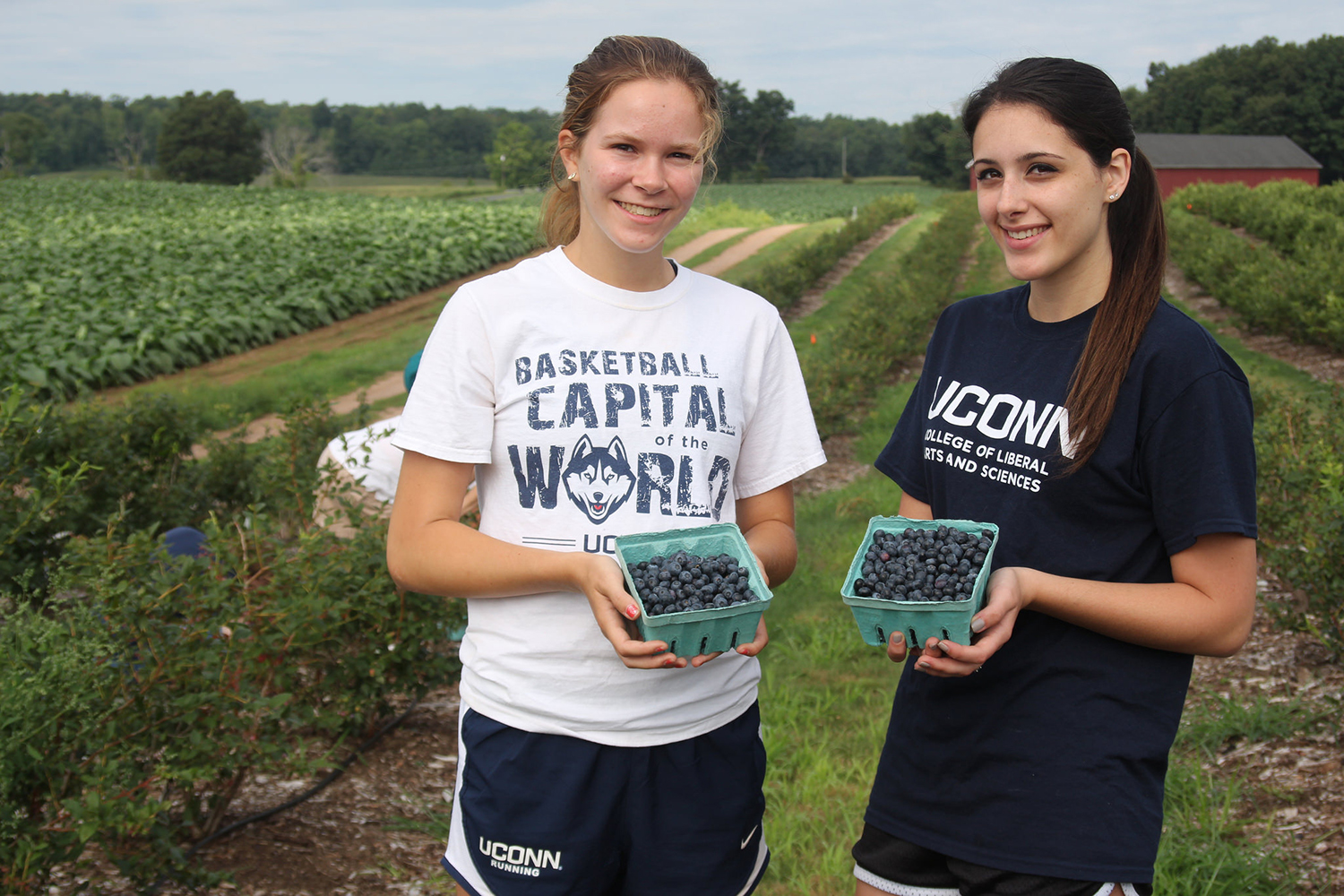By Jason M. Sheldon.
The United States Department of Agriculture and the Environmental Protection Agency recently announced national goals last year to reduce food waste. Setting the mark at a 50 percent reduction by 2030, the agencies stressed the staggering costs of discarded food. Nationally, an estimated 40 percent of food is thrown away, amounting to losses over $160 billion. Food waste affects food security, natural resources and climate change. With one in six Americans lacking access to a consistent, nutritional supply of food and the considerable amounts of energy, land and water used to produce food that is thrown into landfills, strategies need to be implemented to minimize waste.
Heeding this call, the College of Agriculture, Health and Natural Resources (CAHNR) partnered with the Department of Dining Services and a number of other UConn departments and organizations for Huskies Ending Food Waste to raise awareness and effect change to reduce food waste on and off campus through four events this semester. CAHNR collaborated with Community Outreach, the Office of the Provost and the Office of Public Engagement. Other major sponsors of this initiative, the Connecticut Farm Bureau, United Technologies and Foodshare, provided funding support and participated in guest lectures for this Food Waste Series.
Cameron Faustman, associate dean for Academic Programs in CAHNR, helped organize Huskies Ending Food Waste with Jillian Ives. Ives is an academic advisor and program advisor for the College Ambassadors in CAHNR.



